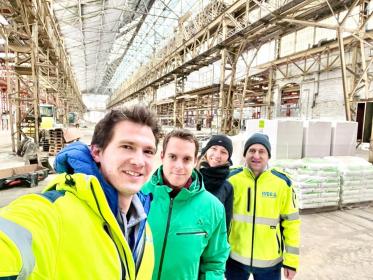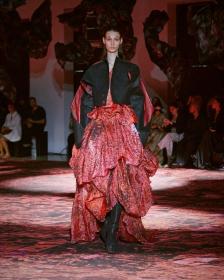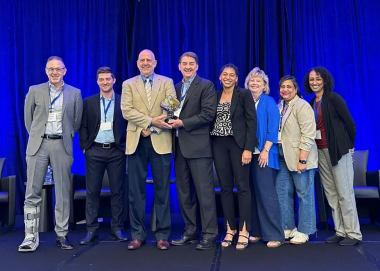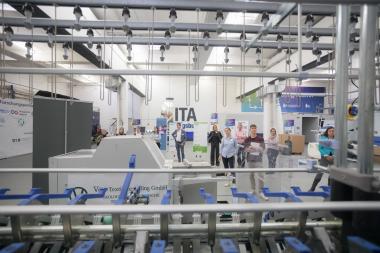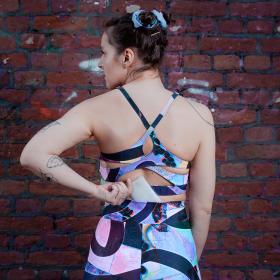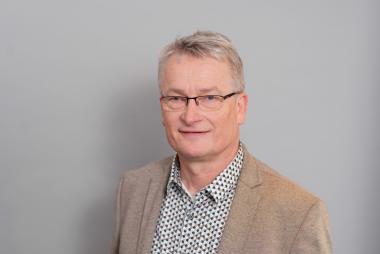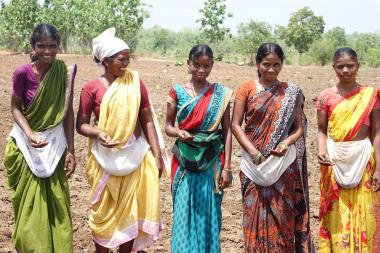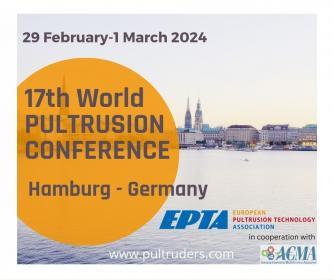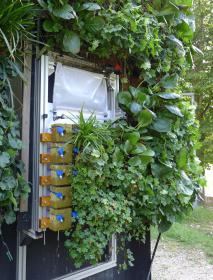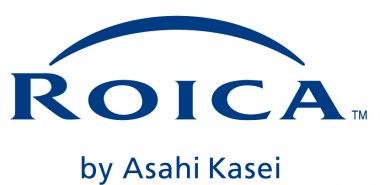Fraunhofer: PFAS-kontaminiertes Wasser wird wieder sauber
Umweltbelastungen durch PFAS gibt es in vielen Böden und Gewässern und damit auch in der Nahrung. Sie zu entfernen ist möglich, aber aufwendig und produziert Sondermüll. Forschenden des Fraunhofer-Instituts für Grenzflächen- und Bioverfahrenstechnik IGB ist es gelungen, ein Verfahren zu entwickeln, mit dem PFAS energieeffizient aus kontaminiertem Wasser entfernt werden könnten. Das Projekt AtWaPlas endete am 30. Juni 2023 nach zwei Jahren Forschungsarbeit mit konkret anwendbaren Ergebnissen.
Per- und polyfluorierte Alkylverbindungen, kurz PFAS (engl.: per- and polyfluoroalkyl substances) kommen in der Natur eigentlich nicht vor. Industriell hergestellt ist diese Gruppe aus mehr als 10 000 Chemikalien in vielen Dingen des Alltags zu finden. Ob in Zahnseide, Backpapier, Outdoorkleidung oder Lösch- und Pflanzenschutzmitteln – überall sorgen PFAS dafür, dass die Produkte wasser-, fett- und schmutzabweisend sind. Sie sind außerordentlich stabil und mittlerweile alleine in Deutschland in Böden, Gewässern und Grundwasser nachzuweisen und damit auch in unserer Nahrung, sie können weder durch Licht, Wasser oder Bakterien abgebaut werden. So reichern sich diese Chemikalien auch im menschlichen Körper an, mit erheblichen gesundheitlichen Auswirkungen, die von der Schädigung von Organen bis hin zu Krebserkrankungen oder Entwicklungsstörungen reichen.
Möglichkeiten, PFAS wieder aus der Umwelt zu entfernen, gäbe es theoretisch schon. Diese sind aber äußerst aufwendig und teuer. Bei einer Filterung durch Aktivkohle beispielsweise werden PFAS zwar gebunden, aber nicht beseitigt, sodass die Überreste im Sondermüll entsorgt bzw. gelagert werden müssen.
Plasma zerstört die Molekülketten der PFAS-Chemikalien
Deshalb haben es sich im Verbundprojekt AtWaPlas (für: Atmosphären-Wasserplasma-Behandlung) Forschende am Fraunhofer-Institut für Grenzflächen- und Bioverfahrenstechnik in Stuttgart gemeinsam mit dem Industriepartner HYDR.O. aus Aachen bereits 2021 zur Aufgabe gemacht, ein effizientes, kostengünstiges Verfahren zu entwickeln, um die toxischen Substanzen möglichst vollständig beseitigen zu können. Dabei lag der Part der Forschungsarbeiten beim IGB, die Wasserproben stammten vom Projektpartner, der unter anderem auf Altlastensanierung spezialisiert ist.
Nach zwei Jahren Projektlaufzeit ist es gelungen, ein Verfahren zu erarbeiten, das auf dem Einsatz von Plasma basiert, und mit dem die Molekülketten der PFAS abgebaut werden können – auch bis zur vollständigen Mineralisierung des Umweltgifts.
Plasma ist ein ionisiertes und damit elektrisch äußerst aktives Gas, das die Forschenden durch Anlegen einer Hochspannung in einem zylinderförmigen, kombinierten Glas-Edelstahlzylinder erzeugen. Anschließend wird das kontaminierte Wasser zur Reinigung durch den Reaktor geleitet. In der Plasmaatmosphäre werden die PFAS-Molekülketten aufgebrochen und damit verkürzt. Der Vorgang in dem geschlossenen Kreislauf wird mehrere Male wiederholt, dabei jedes Mal die Molekülketten um ein weiteres Stück verkürzt, so lange, bis sie vollständig abgebaut sind.
Nach wenigen Stunden im Reaktor sind die Gifte abgebaut
Gestartet wurden die Forschungsarbeiten in einem kleinen Laborreaktor mit einem Probenvolumen von einem halben Liter, Erweiterungen folgten. Das Wasser, das für die Tests verwendet wurde, war kein Leitungswasser mit zugesetzten PFAS, sondern „echtes Wasser“ – sogenannte Realproben. Das Wasser stammt aus PFAS-kontaminierten Gebieten, eine Mischung aus verschiedensten Partikeln wie Schwebstoffen und organischen Trübungen. Bereits nach zwei Stunden, in denen die Grundwasserproben durch den Reaktor gepumpt worden waren, konnte ein nennenswerter Abbau der Kohlenstoffkettenlänge beobachtet werden; nach sechs Stunden war die PFAS-Konzentration deutlich verringert, also ein Großteil der Chemikalien aus der Probe entfernt. Dies deckt sich mit Vermutungen, die bereits vor einiger Zeit in der Literatur geäußert wurden.
Mit dem gleichen Aufbau lässt sich die Plasma-Methode auch zur Aufreinigung anderer Wasserverschmutzungen einsetzen, etwa von Medikamentenrückständen, weiteren Industriechemikalien oder Pflanzenschutzmitteln. Untersucht wurde dies in vorangegangenen Projekten WaterPlasma und WasserPlasmax. Auch könnte der Reaktor mit etwas weiterer Entwicklungsarbeit einmal energieeffizient mit Umgebungsluft betrieben werden.
Förderung
Das Bundesministerium für Bildung und Forschung (BMBF) hat das Verbundprojekt »AtWaPlas: Aufbereitung und Rückgewinnung PFAS-belasteter Wässer mittels Atmosphären-Wasserplasma-Behandlung«, Förderkennzeichen 02WQ1601B, im Rahmen der Strategie »Forschung für Nachhaltigkeit« (FONA) im Programm »Wasser: N« gefördert.
Fraunhofer IGB


